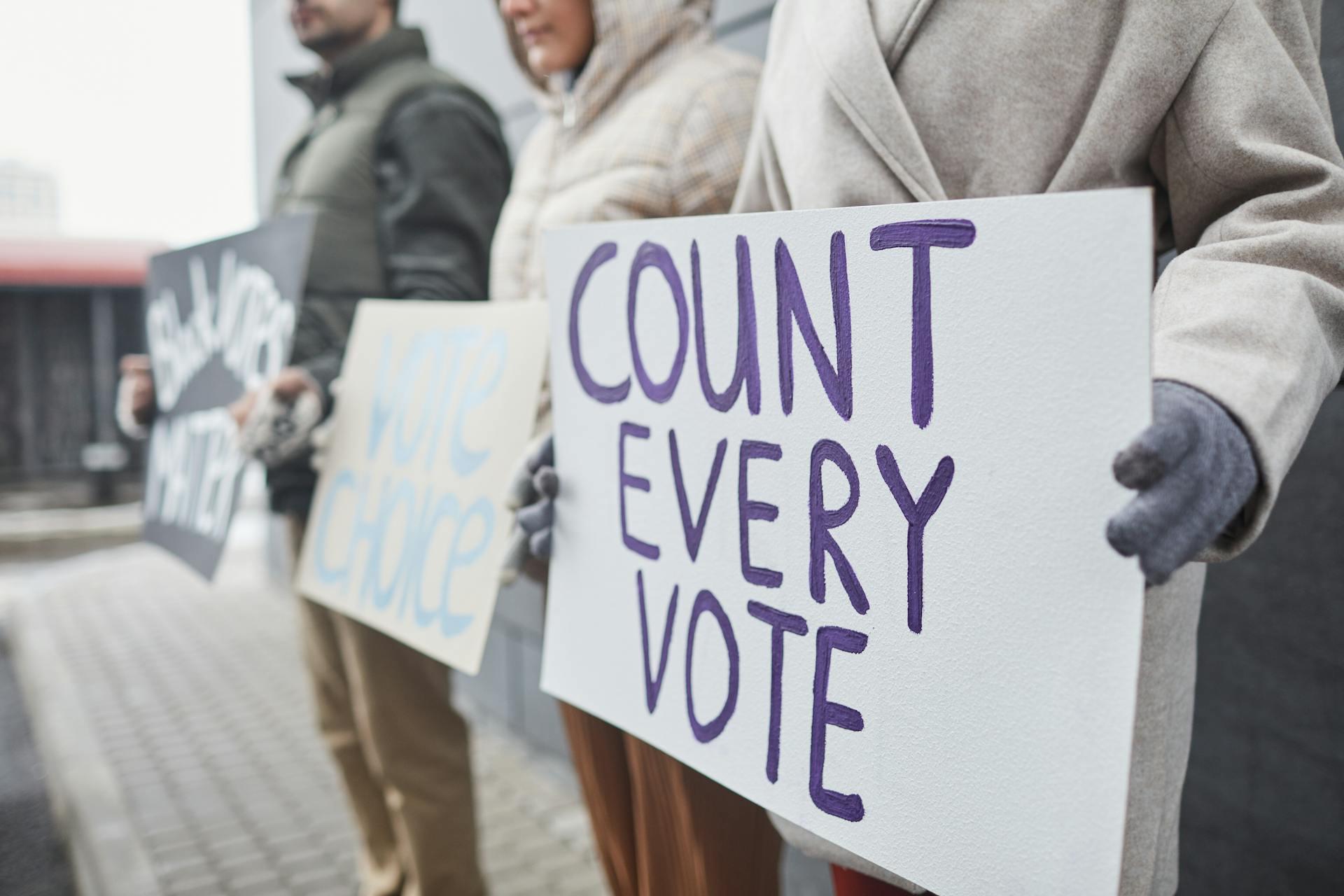The United States of America is the only country in the world that still utilizes an Electoral College for positions with as much weight as the US President.
Other countries that decide on leaders via an Electoral College include Myanmar, Burundi, Estonia, India, Madagascar, Nepal, Pakistan, Trinidad and Tobago, Vanuatu, and Vatican City.
What benefit does an Electoral College offer a country when they’re voting for leaders? What are the downsides? Why do we have the Electoral College, and how does it play into the American voting system?
In this article we'll explore
- The History of the Electoral College in the US
- The Role of the Electoral College in the Presidential Election

What Is the Electoral College?
The Electoral College in the US is a group of 538 people tasked with casting formal votes for the President and Vice President on behalf of the people in the states whom each person represents. Local and statewide elections do not use an Electoral College.
There are currently 538 electoral votes available in each presidential election.
It can be difficult to concisely explain the Electoral College completely because it’s an intricate concept. The most important features of the US Electoral College are:
- Each state gets to appoint the same amount of Electoral College representatives (called “electors”) as they have members of Congress.
- Remember, every state in the US has 2 senators. Each state is awarded a different amount of state representatives based on population. Both Senators and Representatives are members of Congress.
- The District of Columbia (D.C.) always gets three Electors.
- For example, California has 52 Representatives and 2 Senators, so they get 54 electoral votes.
- Electors are not Congresspeople; they are typically (but not always) people whom the state’s respective political parties choose, and a group of Electors is called a “slate.”
- So, each political party in each state will put together their own slates. The party that wins the popular vote in each state will (typically) be the one to task their slate with submitting electoral votes.
- Electors are usually active participants in their local politics and act in alignment with a specific political party’s interests.
- There are 538 Electors in the College (“College” in this instance means “colleagues; a group of people with the same pursuit”). There are always 538 electors because there are always 435 state representatives (the distribution can shift in relation to states’ populations, but there are always the same number of representative positions available), always 100 senators (2 from each state), and always 3 electors for D.C.
- The presidential candidate must secure at least 270 Electoral votes (over 50%) to become the president-elect.
| State | Number of Electors | % of Electoral Votes | ~% of Population (2024) | State | Number of Electors | % of Electoral Votes | ~% of Population (2024) |
|---|---|---|---|---|---|---|---|
| Alabama | 9 | 1.67% | 1.53% | Montana | 4 | 0.74% | 0.34% |
| Alaska | 3 | 0.56% | 0.22% | Nebraska | 5 | 0.93% | 0.59% |
| Arizona | 11 | 2.04% | 2.23% | Nevada | 6 | 1.12% | 0.96% |
| Arkansas | 6 | 1.12% | 0.92% | New Hampshire | 4 | 0.74% | 0.42% |
| California | 54 | 10.04% | 11.58% | New Jersey | 14 | 2.60% | 2.78% |
| Colorado | 10 | 1.86% | 1.76% | New Mexico | 5 | 0.93% | 0.63% |
| Connecticut | 7 | 1.30% | 1.08% | New York | 28 | 5.20% | 5.80% |
| Delaware | 3 | 0.56% | 0.31% | North Carolina | 16 | 2.97% | 3.27% |
| District of Columbia | 3 | 0.56% | 0.20% | North Dakota | 3 | 0.56% | 0.23% |
| Florida | 30 | 5.58% | 6.84% | Ohio | 17 | 3.16% | 3.52% |
| Georgia | 16 | 2.97% | 3.32% | Oklahoma | 7 | 1.30% | 1.22% |
| Hawaii | 4 | 0.74% | 0.43% | Oregon | 8 | 1.49% | 1.26% |
| Idaho | 4 | 0.74% | 0.59% | Pennsylvania | 19 | 3.53% | 3.86% |
| Illinois | 19 | 3.53% | 3.73% | Rhode Island | 4 | 0.74% | 0.33% |
| Indiana | 11 | 2.04% | 2.05% | South Carolina | 9 | 1.67% | 1.63% |
| Iowa | 6 | 1.12% | 0.96% | South Dakota | 3 | 0.56% | 0.28% |
| Kansas | 6 | 1.12% | 0.88% | Tennessee | 11 | 2.04% | 2.14% |
| Kentucky | 8 | 1.49% | 1.35% | Texas | 40 | 7.43% | 9.22% |
| Louisiana | 8 | 1.49% | 1.36% | Utah | 6 | 1.12% | 1.03% |
| Maine | 4 | 0.74% | 0.42% | Vermont | 3 | 0.56% | 0.19% |
| Maryland | 10 | 1.86% | 1.84% | Virginia | 13 | 2.42% | 2.61% |
| Massachusetts | 11 | 2.04% | 2.09% | Washington | 12 | 2.23% | 2.33% |
| Michigan | 15 | 2.79% | 2.99% | West Virginia | 4 | 0.74% | 0.53% |
| Minnesota | 10 | 1.86% | 1.72% | Wisconsin | 10 | 1.86% | 1.77% |
| Mississippi | 6 | 1.12% | 0.88% | Wyoming | 3 | 0.56% | 0.17% |
| Missouri | 10 | 1.86% | 1.85% | TOTALS (rounded) | 538 | 100.00% | 100.24% |
While there are many more nuances to the Electoral College and the Electors, when you know these basic facts, you can understand the rest of the Electoral College’s significance in American presidential elections.
Why Was the Electoral College Created?
The Electoral College (E.C.) was implemented as a way to balance the voting power of states with differing populations, especially at a time when transportation and communication were limited. When the founders of America were coming up with the laws and rules for running the country, deciding the method for choosing the president was one of the big hurdles they needed to solve quickly.
A Brief History of the Electoral College
The American Revolutionary War waged from April 19, 1775 to September 3, 1783. From 1774 to 1789, the Continental Congress was the system of government leading the colonies-turned-nation. In 1787, the leaders of the country began deciding on how to construct the Constitution at the event known as the Constitutional Convention.
A group of designated people who cast official votes on behalf of a larger group of people.
At the time, they were dealing with a myriad of domestic issues including a lack of funds, interstate rivalries, and the threat of domestic insurrection. Clearly, something needed to change; the states needed a better say in how the government functioned so they did not feel the need to fight with arms. After all, the country simply would not succeed if everyone was always at war with their neighbor.
One of the first big questions that needed answering was: How do we elect the leader of the country?
The solution that was decided was to use electors according to Article II, Section 1, Clause 3 of the Constitution.
One of the other major issues they tackled at the same time was deciding how many congressmen each state should have. It was decided that every state should have 2 senators and a number of representatives proportional to the population.
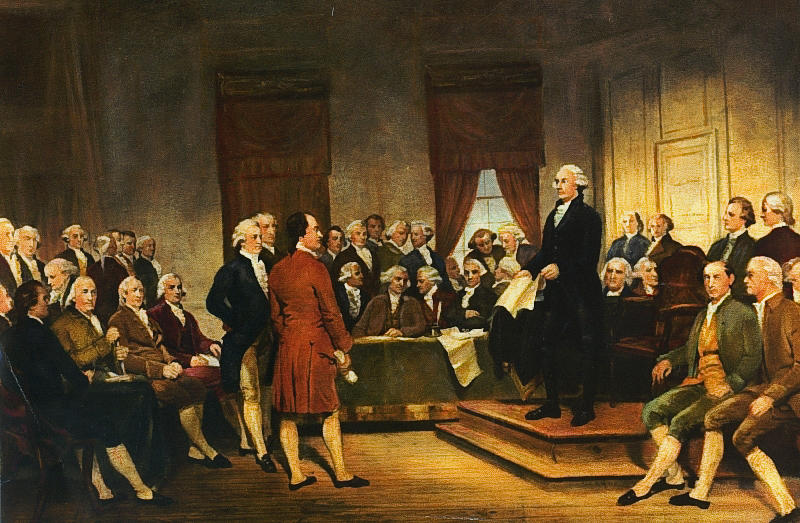
At the time there were only 13 states/would-be-states: New Hampshire, Massachusetts, Rhode Island, Connecticut, New York, New Jersey, Pennsylvania, Delaware, Maryland, Virginia, North Carolina, South Carolina, and Georgia, and the Southern states found themselves at a disadvantage.
Enslaved people did not count as part of the population because they were considered property. Therefore, the population in the Southern states was scant compared to Northern states; enslaved people made up about 40% to 60% of the entire population in Southern states compared to less than 5% in the Northern states. As a result, the South would have a smaller say in the new government with fewer congressmen.
They [the Continental Congress] were tired, impatient, frustrated. They cobbled together this plan [to use electors] because they couldn’t agree on anything else.
George Edwards III, Political Science professor at Texas A&M University
To get the North and South to agree to ratify the same constitution, the Three-Fifths Compromise was necessary. It declared that ⅗ of enslaved people counted toward the population of a state, inflating the southern population numbers to be more on par with the north. Enslaved people did not get to vote; their existence was simply used as a way for the Southern states to secure a larger influence in national politics.
A consequence of this decision was that Southern states got a disproportionately high number of electors in the presidential election.
An electoral vote is an official vote for president and vice president cast by a member of the Electoral College.
The first Presidential election was held on February 4th, 1789. 10 of the 13 states sent electors to vote for president and vice president (North Carolina and Rhode Island had not yet ratified the Constitution and New York was dealing with a legislative conflict). George Washington was unanimously elected as the first president of the United States.
Later on, in 1804, the 12th Amendment modified the presidential election process and therefore the E.C.’s role in voting. Before, they would cast two votes each and the candidate with the most votes would become president, while the candidate in second place would become vice president. The 12th Amendment changed the process so that the electors had to declare their vote specifically in the president and vice president categories.
In 1961, the 23rd Amendment was ratified which allowed D.C. to have three electors (previously they had none).
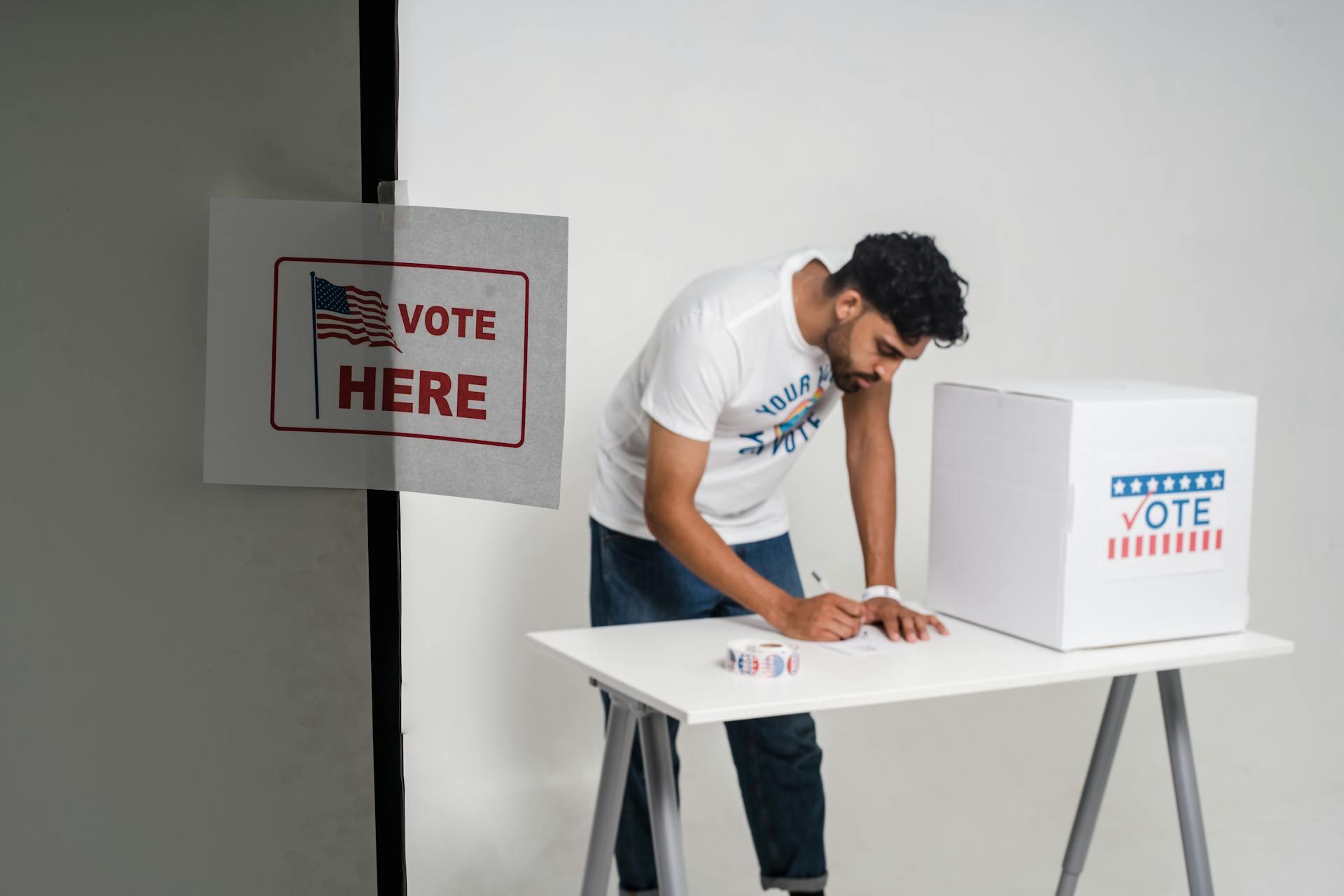
Why Use Electoral College vs Popular Vote
During the Constitutional Convention, some politicians wanted to elect a president via a popular vote method, but opponents said that those in rural areas could hardly be informed enough to make a sound decision at the polls, plus it would allow candidates to pander to the masses too much.
Others wanted Congress to elect the president, but opponents of this idea said that it would allow politicians to bribe and corrupt congress members and implement cronyism to unfairly secure votes.
Nobody wanted a repeat of what they had just overthrown: a small group of people (or one person) with too much power who abused their position, ie a monarchy.
The Electoral College was created as a compromise.
The masses could declare their preference for a candidate to non-congressional electors, who would act as intermediaries and who would then cast official votes on behalf of their constituents.

What Does the Electoral College Do and How Does the Electoral College Work?
How does the election process actually work when it comes to the Electoral College?
It’s easy to think that everything regarding the presidential election happens on Election Day, which is always the Tuesday after the first Monday in November (so, the first or second Tuesday). However, the entire process is actually stretched over a much longer period of time.
The timeline for the 2024 elections looks like this:
Spring & Summer
Slate Nominations
Before the November election, the political parties in each state nominate their respective slates of electors. However, none of these people are actual members of the college until around December 10th, when all the state's votes are counted.
November 5th
General Election (Presidential Election)
All voters cast their ballots for the popular vote for presidential candidates. Simultaneously, voters (including potential electors themselves) are casting a vote for which slate of electors to send to cast the official vote. In every state except Nebraska and Maine, the full slate aligned with the popularly-voted candidate will cast their votes for their designated political party; this is the winner-take-all system.
December 10th
Popular Vote Finalized
This will determine the slate of electors.
December 17th
Electoral College Votes
The official ballots are signed by the electors. The original is sent to the Vice President (who is also the President of the Senate) and copies are sent to the National Archives, the secretary of state, and the presiding judge in the state where the vote is taking place.
December 25th
Deadline for All Electoral Ballots to Be Delivered
The Vice President should have all the ballots.
January 6th, 2025
Congress Convenes
Congress counts all the Electoral votes and the President-elect is officially declared.
January 20th
Inauguration Day
The new president and vice president are sworn into office.
In Maine and Nebraska, the electoral votes are separated by congressional districts. For example, Nebraska has 3 congressional districts, therefore 3 members of the House of Representatives, therefore 3 electors whose votes are determined by the popular vote in the state’s congressional districts. One candidate can secure one of these votes and another candidate can secure the other two (or vice-versa, or they could secure all three). The other 2 electoral votes go to the candidate who wins the popular vote statewide (totaling 5 electoral votes in the case of Nebraska).
A presidential candidate needs at least 270 electoral votes (the majority of 538 available votes) to secure the presidency. If no candidate earns the majority, the vote is left to Congress, where each state’s representatives can cast one vote in unison, and candidates must get at least 26 votes to win.
What Is the Purpose of the Electoral College Today?
Today, the Electoral College is tasked with upholding the interests of the voters they represent. It’s expected that they will cast their votes in alignment with their states’ electoral voting policy, that is, they will vote for the party they were chosen to represent as part of the slate.
They are responsible for conveying the voting results to Congress and facilitating the election process.
Pros and Cons of the Electoral College
The Electoral College is still in use in part because lawmakers and members of government cannot agree on a suitable alternative. There have been over 700 proposals to reform or eliminate the Electoral College over the past 200 years. While there have been some slight modifications to the election process over the years which have affected the E.C., it still functions virtually the same as it did upon its 1789 debut.
Let’s find out about the biggest pros and cons of the Electoral College.
Benefits of the Electoral College
Many lawmakers, members of government, and even citizens are in favor of the Electoral College because they say it upholds the vision of the founding fathers and gives small states equal importance, rather than just urban areas with dense populations. It is also a tidy way to handle millions of votes.
The problem with deciding Presidential elections via popular vote is that candidates would naturally campaign in urban areas with big media markets and their policies would follow suit. Better to have proportional electoral college votes in each state so you campaign everywhere.
Andrew Yang, Former Presidential Candidate
Candidates Can’t Forget the Little Guys
Proponents of the E.C. say that without it, candidates would focus their attention and policies only on densely populated areas, leaving those in less-populated states and rural areas without a candidate who cares about their needs. With the E.C. system in place, politicians must consider people from all states and population densities when campaigning.
It’s Easier to Count the Votes
Counting the 538 official votes is much easier than counting all the individual votes across the nation.
The next presidential election will be held November 5th, 2024. The electoral votes will be announced January 6th, 2025, and the next Inauguration Day will be January 20th, 2025.
There’s No Viable Alternative at the Moment
Love it or hate it, the current election system hinges on the Electoral College to function. Coming up with a new system would take a lot of time, energy, money, and more to get everyone on board. Since there have been 700 failed proposals about changing the E.C. in the past, it’s unlikely there will be an alternative system proposed that garners enough support from members of government in the near future.
There is a movement to adopt a modification to the E.C. called the National Popular Vote Interstate Compact (NPV), which would make it so states choose their electoral votes according to who wins the popular vote nationally, but it has not yet gained the required traction to be implemented.
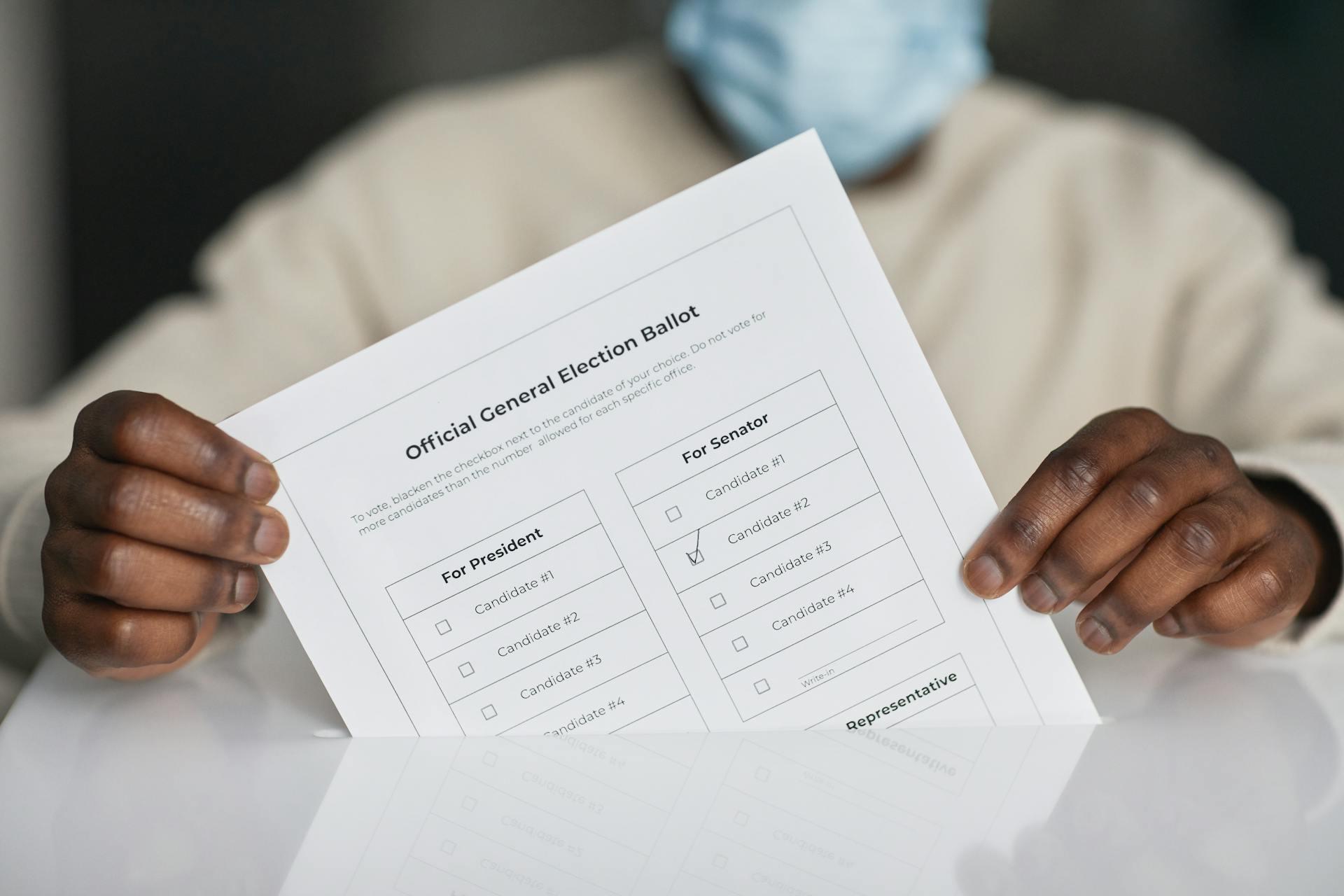
Drawbacks of the Electoral College
The lawmakers, government members, and citizens who oppose the Electoral College say that it gives too much power to smaller states in relation to states with larger populations and allows political parties to manipulate voters through methods like voter suppression and gerrymandering.
The U.S. Electoral College is such a departure from the basic tenets of democracy that it is not surprising other democratic nations have not adopted it.
Email from George C. Edwards III, Professor of Political Science at Texas A&M University, author of Why the Electoral College is Bad for America
The Popular Vote Doesn’t Always Win
In theory, the popular vote should always align with how the E.C. votes because the electors vote on behalf of the individual citizens across the country. However, it has occurred five times in history that the president-elect lost the popular vote (1824, 1876, 1888, 2000, and 2016). Critics say this clearly demonstrates that the Electoral College doesn’t always properly convey the will of the people.
Candidates Still Bank on Certain States
Even though supporters of the Electoral College argue that it prevents small states from being irrelevant, the current system doesn’t eliminate the skewed mechanics of securing the majority of the electoral votes. A candidate could fail to get even a single vote in 39 states plus D.C. and still win the presidency simply by securing 11 of the remaining 12 states (in this scenario: California, Florida, Georgia, Illinois, Michigan, New Jersey, New York, North Carolina, Ohio, Pennsylvania, Texas, and Virginia). While this situation is unlikely, it shows how even if the majority of states do not support a candidate, a handful of other states could still ensure that candidate wins.
Furthermore, swing states draw candidates’ attention way more than “safe” states, and votes in those states have a heaver weight than votes in other states.
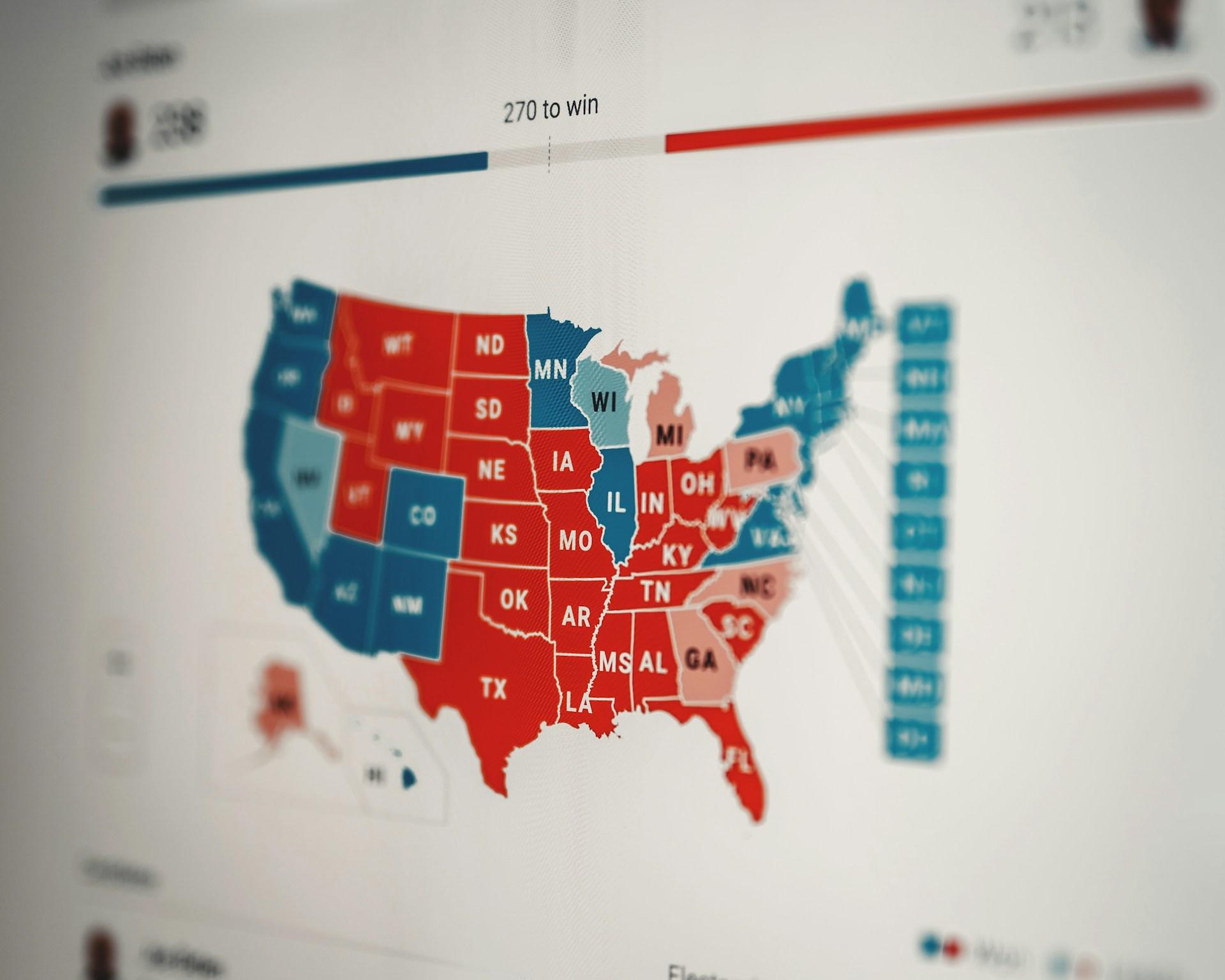
Based in Racism
It’s a fact that the origin of the Electoral College is due to southern states (read: states with lots of slaves) wanting to have more influence in politics at the time to ensure their specific interests were protected in Congress, hence the Three-Fifths Compromise. Now, even though slavery is gone, southern states tend to have a history of voter suppression preventing certain demographics from casting their individual votes. These demographics tend to be non-white communities.
For example, a recent Georgia law forbids giving water to voters waiting in line. This primarily affects voters in poorer communities, which tend to be non-white and which tend to vote more for the democratic party. Their polling places tend to be harder for people to reach with longer, slower-moving lines. The amount of time it takes, plus exposure to the weather, and now without the option to receive water in line forces many people to give up pursuing a vote and instead go home or to work.
Faithless Electors Can Vote Rogue
Most states don’t have rules against slated electors voting against the wish of their state’s people, and even many of those that do cannot stop an elector from casting a vote contrary to what they are expected to do. In many states, electors can submit votes that go against what they are supposed to do, effectively taking matters into their own hands and ignoring the will of the people. In history, 19 electors have voted contrary to their state's decision. 10 of those electors were in the 2016 election.
Additionally, it's possible to attempt to submit fraudulent electoral votes, as evidenced by the 2020 election.
Reinforces the Two-Party System
Many other developed nations have more than two parties in government that make decisions. The Electoral College makes it nearly impossible for a third party to gain any traction in the presidential race, which could be an asset to the United States given the opportunity.
The Electoral College is a pivotal part of the American election process as it functions today. The function of the E.C. may change in the future, but it’s unlikely that such a thing will happen soon. In the meantime, it’s a good idea to understand the role of the Electoral College in presidential elections.
References
- 10 Countries Besides the U.S. That Have Electoral Colleges. (2019). In HowStuffWorks. https://people.howstuffworks.com/10-countries-besides-us-have-electoral-colleges.htm
- Bertelsmann Foundation. (2024). How the Electoral College Works. In YouTube. YouTube. https://www.youtube.com/watch?v=CAk_DPhfy_E
- Electoral College. (n.d.). In USAGov. https://www.usa.gov/electoral-college
- Electoral College History. (2019). In National Archives. https://www.archives.gov/electoral-college/history
- Marchetti, T. (2020). The Good, the Bad, and the Ugly about The Electoral College. In Monmouth Magazine. https://www.monmouth.edu/magazine/the-good-the-bad-and-the-ugly-about-the-electoral-college/
- National Popular Vote Interstate Compact. (2024). In Britannica. https://www.britannica.com/topic/National-Popular-Vote-Interstate-Compact
- TED-Ed. (2012). Does your vote count? The Electoral College explained - Christina Greer. In YouTube. YouTube. https://www.youtube.com/watch?v=W9H3gvnN468
- The Electoral College. (n.d.). https://www.ncsl.org/elections-and-campaigns/the-electoral-college
- The Electoral College Explained. (2023). In Brennan Center for Justice. https://www.brennancenter.org/our-work/research-reports/electoral-college-explained?fbc=
- The Pros and Cons of the Electoral College - SmartAsset. (n.d.). In smartasset.com. Retrieved September 9, 2024, from https://smartasset.com/insights/the-pros-and-cons-of-the-electoral-college
- US States - Ranked by Population 2024. (n.d.). In worldpopulationreview.com. https://worldpopulationreview.com/states
- Vox. (2020). The Electoral College, explained. In YouTube. YouTube. https://www.youtube.com/watch?v=ajavsMbCapY
- What is the Electoral College? (2019). In National Archives. https://www.archives.gov/electoral-college/about
- Why Was the Electoral College Created? (2020). In HISTORY. https://www.history.com/news/electoral-college-founding-fathers-constitutional-convention
Summarize with AI:

